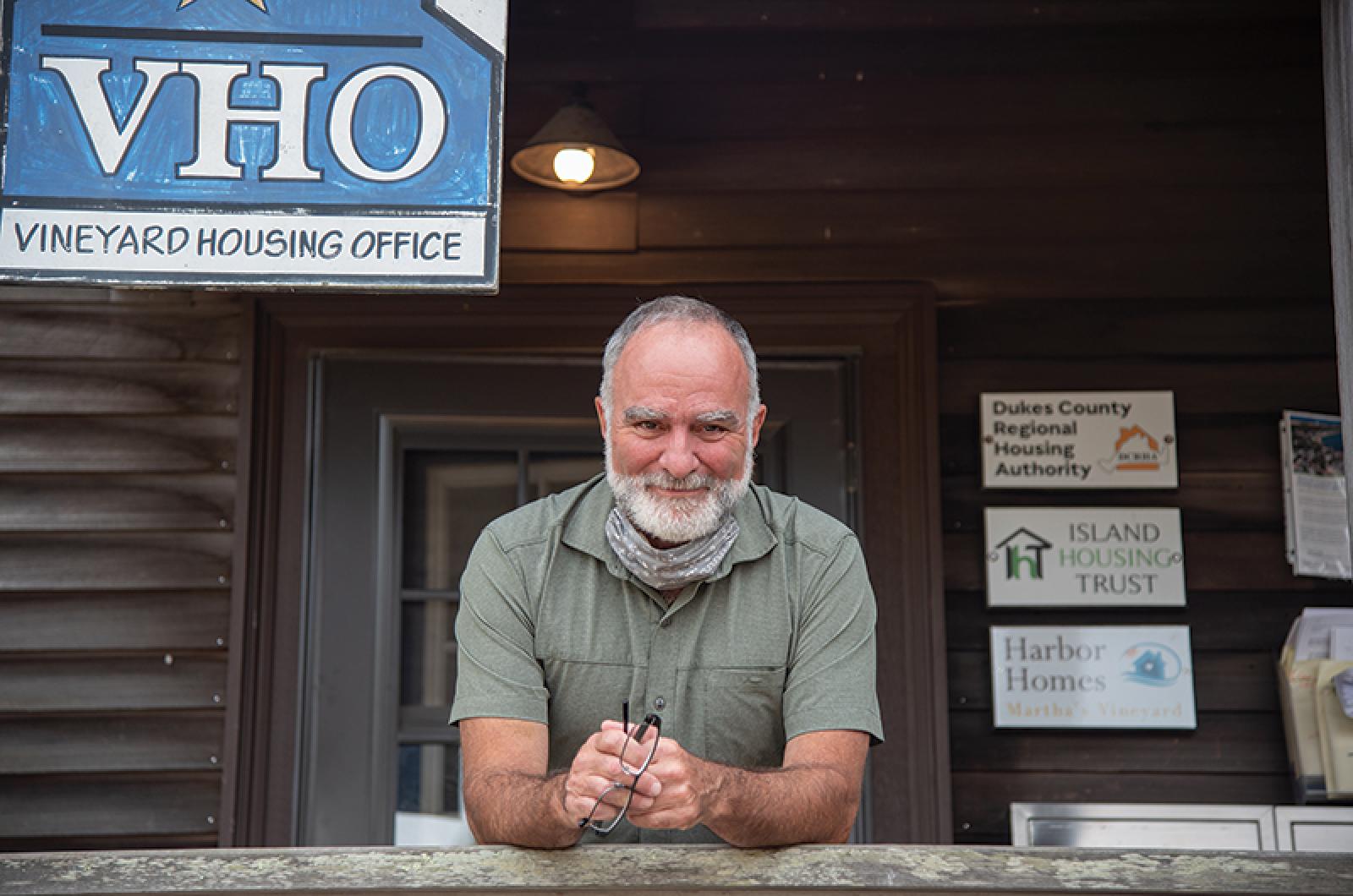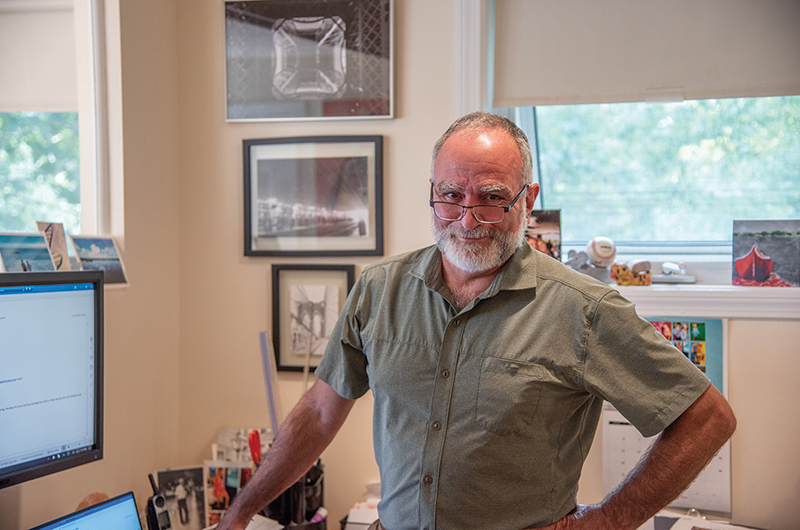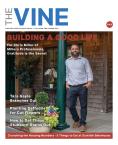Anyone who has struggled to rent or buy a home on Martha’s Vineyard probably knows about the Dukes County Regional Housing Authority. It manages 94 year-round rentals, administers town-funded rental assistance programs and can provide educational and other resources for those seeking to rent or own, all while collaborating with other Island housing organizations.
Finding a place to live is an uphill battle for many on this Island. There are never enough year-round rentals, and ownership usually requires two incomes and a solid credit history. And now Covid-19 has exacerbated an already difficult situation: home prices are soaring and availability is shrinking as more people seek to make the Island a safe haven for more than just the summer.
David Vigneault has worked on housing issues for nearly all of his professional life; first in the Boston area for people with disabilities and since 1987, here on Martha’s Vineyard. He took on the leadership of the Dukes County Regional Housing Authority in 2005.
Q. Where did this journey start?
A. I was raised as the oldest and only boy along with four sisters in Manchester, New Hampshire, once the largest textile-producing city in the world.
Mill work had drawn both my father’s Quebecois family and my mother’s Lebanese family to New Hampshire shortly after World War I. In the sixties, most of those mills were closed.
Q. And your parents?
A. My father worked a Teamsters union job delivering produce all over northern New England for Associated Grocers in Manchester. My mother had a number of part-time and full-time jobs over the years – always successful, always promoted.
Q. What did you do after high school?
A. I lived and worked on horse farms for a number of years in northern New Hampshire and Vermont and supplemented that by working in restaurants. Then I migrated to Boston. I was a late bloomer. I enrolled at Boston College when I was 22, but after two years, money and grants ran out and I needed to leave. I returned when I learned that if I worked there, my tuition would be forgiven. That’s when I discovered the Campus School.
Q. What was that?
A. The Campus School was [and still is] a school for students with a variety of learning impairments, associated with BC’s Lynch School of Education. There were grad students and Ph.D. students working on their degrees in the school, consulting, running things, etc. I sought it out and very happily worked there. Because I couldn’t afford an apartment, I also lived and worked in a few group homes. So I had this connection with disability and housing right off the bat.
Then in 1987, I interviewed for a position creating employment options for the disabled on the Vineyard and got the job. That’s when I moved here.
Q. What made you stay? The work – or something else?
A. The work was incredible. If I had any success over the years it was that I not only worked with people with disabilities, but also with town officials, employers and community leaders. I got to facilitate on behalf of those with disabilities, and I loved that. Soon I found myself in front of the Dukes County Regional Housing Authority to pitch an idea for housing for folks with cognitive impairments. Years later I was on the board and now I am its director.
Q. What do you like about the work?
A. I like addressing a need that Island households have that’s essential to their success. If you don’t have good, year-round housing, you have a bunch of stresses that rob you of some of the benefits of our wonderful community. I describe housing insecurity on the Vineyard as renting. You are one phone call away from your otherwise great landlord putting your home on the market or having the guesthouse or basement apartment go to a returning son or daughter.
Q. What do you wish you could change?
A. When I was running Vineyard Employment Options (state contracts for people with disabilities), I had an office on Nantucket as well. So I had the comparative experience of working [in a place] with just one town government, one county. Every problem they have is exactly the same as we have; but solving problems was easier and faster there with just one government.
The inefficiencies in effort that surround our six-town structure are probably the hardest things to deal with in my job. I’m all in favor of six distinct historic districts; that makes sense. But then would you please buy toilet paper together? Maybe use the same tax assessment tool?
Covid-19 has revealed how difficult it is to not have a unified government. There’s a lot of duplication, a lot of redundancies and inefficiencies, time wasted, etc. Nevertheless it is the way it is, and I’ve learned to accept and work with it.
Q. Covid-19 has also made your commitment to affordable housing more difficult, no?
A. Yes! About a week before articles appeared on what’s been happening to real estate here this year, I attended a Zoom meeting with Island realtors. To a person, they said they are working 10 to 12 hours a day. One listing service said they’ve sold 100 homes in the last six months! The entry point to home ownership went up from $600,000 to $700,000 and it’s still climbing. I think we have a pretty significant challenge in front of us.
Q. What worries you?
A. I think we’re going to have a difficult winter. I think that the absence of that summer nut – those extra jobs catering or operating under dad’s electrician’s license on Saturdays – will make it challenging. That second or third income is what people need out here to get through January, February and March.
Q. So what do you see as solutions to our perennial housing problem?
A. Many things have helped or could help some families, like the lottery we just ran to fill seven apartments in an inn renovated and converted by the Island Housing Trust, or the over-shop apartments in Oak Bluffs, or the proposed development of the Hinckley site in Vineyard Haven. But only a concerted, regional effort by all six towns together can offer a long term, cost effective solution to this problem.
Paula Lyons, a former television consumer journalist, lives in Vineyard Haven.












Comments